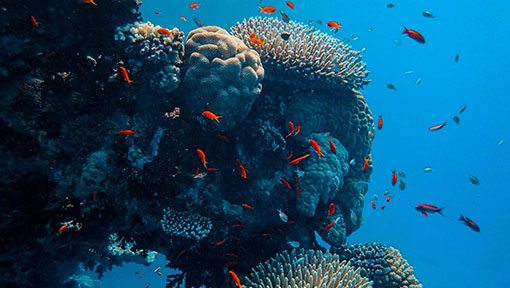The Global Ocean Observing System (GOOS) contributes significantly to marine ecosystem health studies. It systematically assesses the status of our ocean’s biodiversity and ecosystems using scientifically and societally relevant biological Essential Ocean Variables (EOVs).
Ocean health provides human benefits that include food provision, carbon storage, tourism and recreation and coastal livelihoods and economies.
These areas are threatened by issues such as the ocean acidification caused by excess human carbon dioxide (CO2) emissions which affects the entire marine food chain.
Increasingly intensive fishing is also threatening populations of predator fish such as tuna or swordfish that keep the population of prey fish like herring in balance. Fewer predator fish means fishermen move down the food chain, shifting ocean ecosystems towards lower trophic levels.
Other stressors on ecosystems include storm damage, flooding and erosion of natural buffers in coastal areas. Protecting against these helps people safe and potentially mitigate against loss of personal and economic property, cultural landmarks and natural resources.
Where next?
Read our vision for 2030
By 2030, we will have a global ocean observing system truly responsive to the needs of end users.


